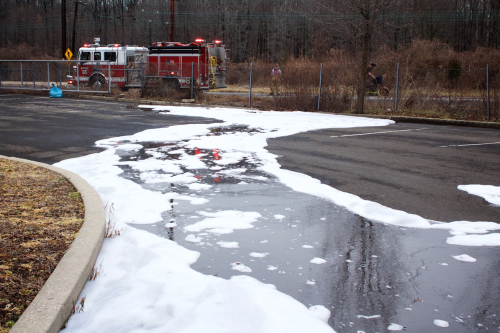
With its passage in the House last week, the Protecting Firefighters from Adverse Substances (PFAS) Act cleared its final legislative hurdle after having passed the Senate last summer.
If President Joe Biden signs the bills as expected, it will require federal agencies to create best practices, training, and educational programs to reduce, limit, and prevent exposure to PFAS chemicals, also known as forever chemicals, due to their inability to naturally break down. The Department of Homeland Security (DHS) would also need to develop educational resources for firefighters related to alternative foams and personal protective equipment that do not contain PFAS.
“Firefighters and first responders put their lives on the line every day to keep our communities in Michigan and across the nation safe,” U.S. Sen. Gary Peters (D-MI), one of the bill’s authors and chairman of the Homeland Security and Governmental Affairs Committee, said. “This bipartisan, commonsense legislation will protect our heroes from harmful PFAS substances and minimize exposure to these dangerous chemicals that continue to harm residents and communities in Michigan and across the country.”
Joining Peters in this effort were U.S. Sens. Dan Sullivan (R-AK), Maggie Hassan (D-NH), and Thom Tillis (R-NC) in the Senate, while U.S. Rep. Debbie Dingell (D-MI) helmed efforts in the House. They posited that the bill would allow the government to be better able to limit PFAS exposure, seek alternatives and employ safer practices all around.
“Firefighters and first responders put their lives on the line to keep communities safe, and they should not have to worry about being exposed to harmful chemicals like PFAS,” Tillis said. “This legislation will develop guidelines to keep our first responders safe and limit the introduction of these harmful contaminants into the environment. I applaud the House for passing this crucial legislation and look forward to President Biden signing it into law.”
DHS would, under the bill’s requirements, have to work with the Environmental Protection Agency (EPA), U.S. Fire Administration, and the National Institute for Occupational Safety and Health to develop any new educational resources for firefighters and emergency response personnel. These measures will be provided to federal, state, and local firefighters.
The effort was backed by such groups as the International Association of Fire Fighters, the International Association of Fire Chiefs, the National Volunteer Fire Council, and more.




